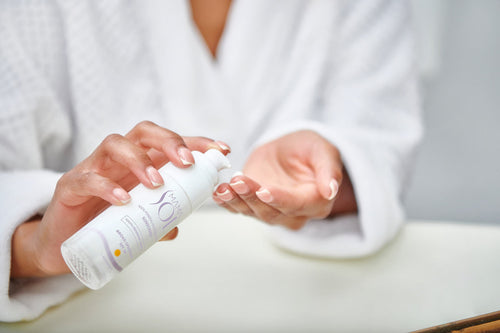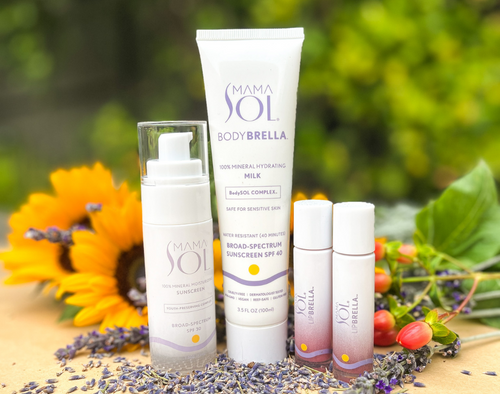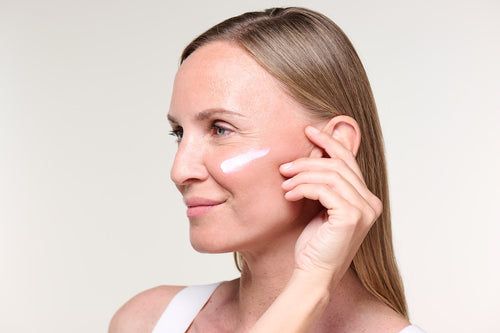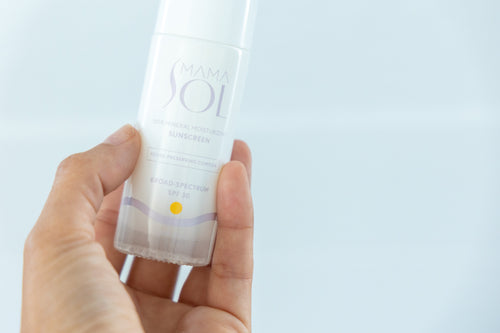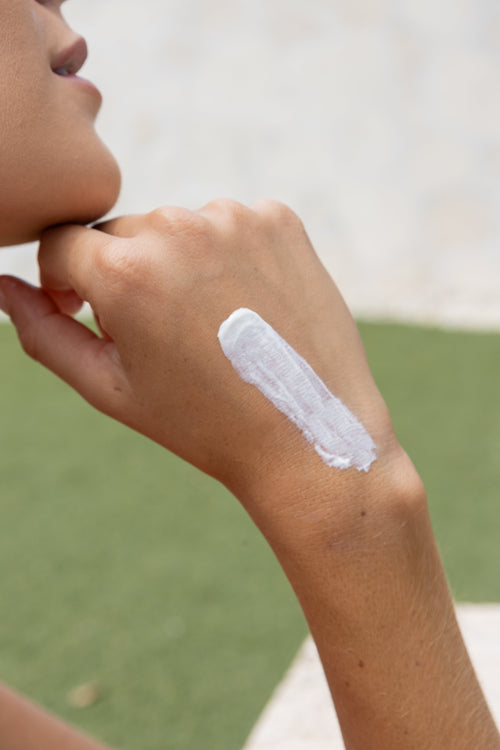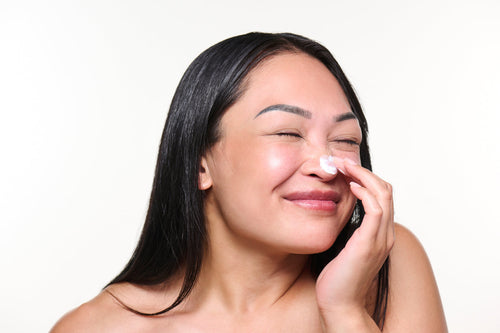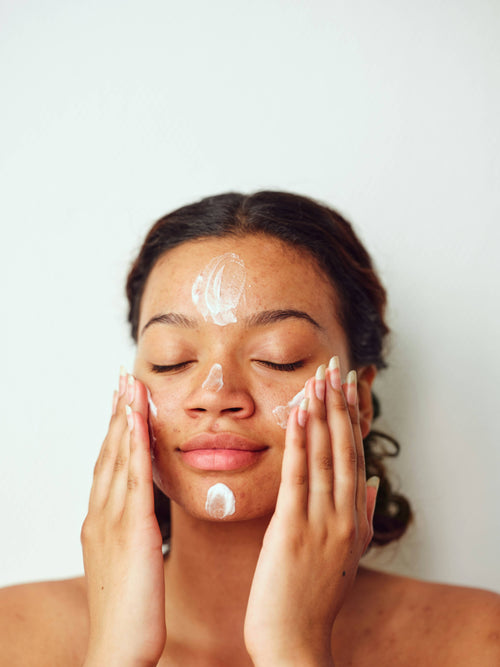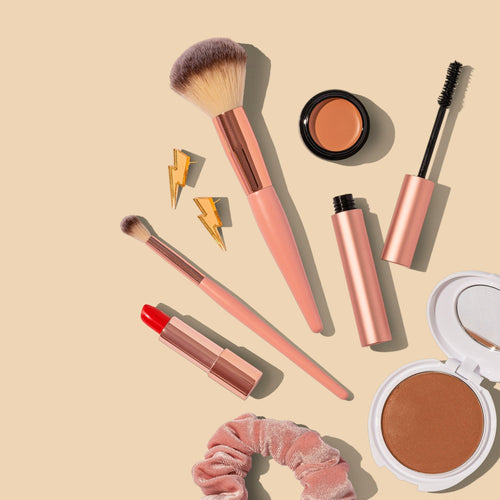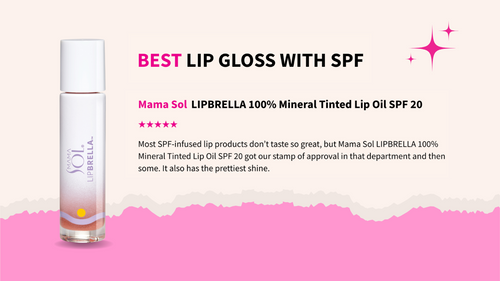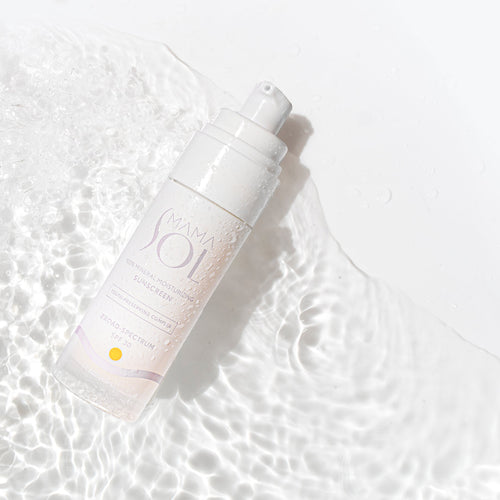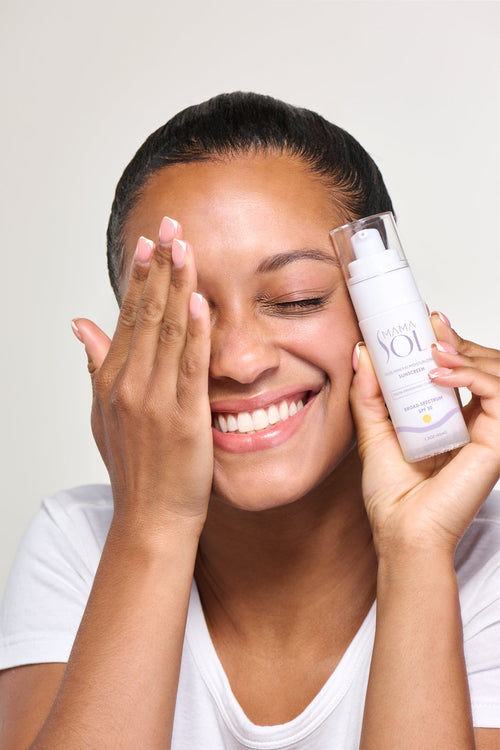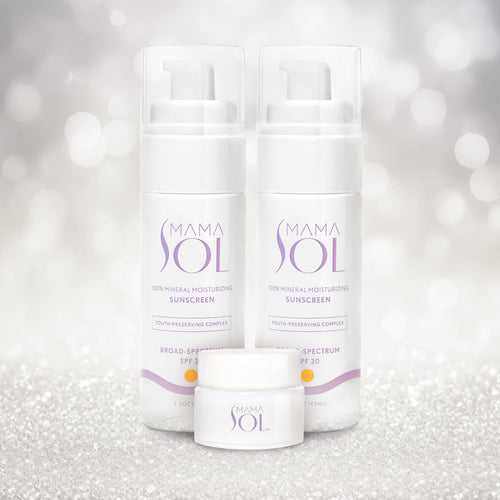
Sunscreen is a non-negotiable part of any daily skincare routine—but if you have acne-prone skin, finding the right one can feel like a major challenge. Many worry that applying sunscreen will clog their pores and trigger breakouts while worsening existing ones.
The good news? With the right formula and a few smart tips, broad-spectrum sunscreen can actually help your skin heal and protect it from long-term damage.
Why Acne-Prone Skin Needs Sunscreen
If you’re dealing with acne, skipping sunscreen may seem like the safest bet since it’s just another potential trigger, but that can do more harm than good. Sun exposure can worsen inflammation and increase the risk of post-acne marks, scarring, and hyperpigmentation.
Ultraviolet (UV) rays also speed up the aging process, making fine lines and uneven texture more visible over time. Even if your acne is under control, protecting your skin from the sun is essential for maintaining clarity, elasticity, and even tone.
What to Look for in a Sunscreen for Acne-Prone Skin
Not all sunscreens are created equal. For acne-prone skin, opt for dermatologist-tested products labeled non-comedogenic, meaning they’re clinically tested and won’t clog pores. Oil-free and lightweight formulations are best, especially gels, fluids, and water-based creams.
Avoid sunscreens with heavy oils, added fragrance, or alcohol, which can irritate sensitive or acne-prone skin. Look for skin-soothing products that protect your skin barrier, like zinc oxide, which is anti-inflammatory, or niacinamide, which helps regulate oil production and calms redness.
Chemical vs. Mineral Sunscreens: Which Is Better?
Sunscreens come in two main types: chemical and mineral (also known as physical). Some sunscreens combine both chemical and mineral active ingredients for a hybrid effect. Chemical sunscreens absorb UV radiation and penetrate the skin, while mineral sunscreens—like those with zinc oxide or titanium dioxide—sit on the skin’s surface as a shield and reflect UV rays.
Mineral sunscreens are often recommended by dermatologists and skin experts for acne-prone and sensitive skin types because they’re less likely to cause irritation or breakouts. There are now newer hybrid and lightweight chemical formulas designed to be skin-friendly and target acne specifically. The best choice comes down to how your skin tolerates the product and personal preference.
Application Tips to Prevent Breakouts
Even the best sunscreen can cause breakouts if not applied correctly. Use about a nickel-sized amount (roughly a teaspoon) for your face and apply it as the last step of your morning skincare routine. For the rest of your body, you’ll want to use about a shotglass’s worth of sunscreen. If you’re also using acne treatments like benzoyl peroxide or retinoids, let those absorb fully before applying sunscreen.
Reapply every two hours if you’re outside, and more often if you’re swimming or sweating. Remember to apply at least once during the day, even if you're mostly indoors. Look for powder or spray sunscreens for easy reapplication over makeup.
Finding the right sunscreen for acne-prone skin might take a bit of trial and error, but it’s essential and worth the effort. A good sunscreen doesn’t just prevent sunburn; it protects your skin from long-term damage, calms inflammation, reduces hyperpigmentation, and supports healing. Prioritize lightweight, non-comedogenic formulas, and don’t skip it—even on cloudy days. Trust. Your future skin will thank you.





